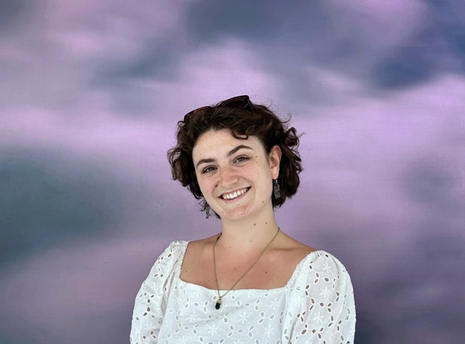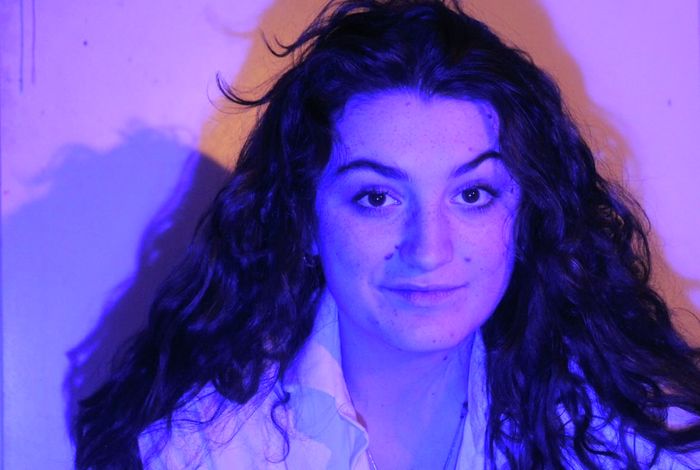Medwards alum Ruby Cline on the ‘joyful chaos’ of her life after Cambridge
Olivia Goodman catches up with content creator and recent graduate Ruby Cline, ahead of her upcoming book ‘All The Work You Shouldn’t Do’
How are you finding life after Cambridge?

I’ve had a pretty staggering variety of experiences since graduating. I moved out, I did a qualification in a language I can only describe as purest suffering (Google “teeline shorthand” if you’re feeling masochistic); I went on an Uber Boat with the King; I finished and polished a real, full, entire book; I collapsed in an airport and massively embarrassed myself; I revealed a Royal Mail scandal on a national paper’s front page on Christmas Eve; and I’m about to move to a new city for three months. Life asks more of you after university, but the breadth of stuff you can get up to when you’re out of education is amazing. I wouldn’t describe my life now as comfortable, but comfort suits fewer people than you’d expect.
Is there anything you miss about Cambridge?
I miss everything being so close together and never having to think about the night bus. I really loved my course (HSPS) and I miss learning in that much depth. I mostly deal in straight facts now, contrary to popular belief about journalists.
I can’t decide if I miss the intimacy of Cambridge and knowing everything about everyone else. I don’t miss everyone else knowing everything about me.
Why did you write ‘All The Work You Shouldn’t Do’?
I was asked to! The wonderful people at Bloomsbury reached out to me and asked me what it might look like for me to write something based on the study and university advice I’d given on TikTok. Nobody’s written about post-COVID university life yet. Lecture note templates are outdated when you can re-watch pre-recorded videos and study tips don’t work anymore for open-book exams. University has changed, and there needs to be new guides to suit that. So that’s what I wrote!
It feels important to me to have a trustworthy, research-backed guidebook to the student experience. I loved the challenge of reading dozens of books on topics I’d never studied before, getting friends to explain neuroscientific terms and flicking through my old A-level Philosophy notes to check I was getting everything right.
“I wouldn’t describe my life now as comfortable, but comfort suits fewer people than you’d expect.”
How would you describe the book to someone else?
All The Work You Shouldn’t Do takes you through all the lessons that generations of students have learnt the hard way, so that you can learn them the easy way. There’s tons of work at university and elsewhere that you shouldn’t have to do at all or that will waste precious time and energy if you do it the wrong way. The book takes you through all that work. It explains how to effectively do all the work that is worth doing, to a standard you’re proud of, and what you should do with all that spare time and energy you’ll have. In essence, it’s the advice I wish I’d had when I started university.
What was it like to write your book? What did the writing process involve?
I put together a book proposal with my wonderful editor, Helen. We went back and forth fine-tuning the contents page and a taster chapter. I found tester readers who gave me feedback and then we tweaked it some more. I started writing the book in my third year and finished my first draft two weeks after my final exams.
It was definitely tough at times to juggle my academic work with writing, but as that’s the book’s topic I taught myself to be a better student as I researched. I wrote throughout my entire exam season. It was therapeutic to reflect on my experiences and it kept both intellectual pathways fresh and interesting.
Writing requires astounding self-discipline, which I often couldn’t summon and I would tut at myself later during the editing process as I fixed lazy sentences. It’s tough in non-fiction to estimate how much the reader already knows. I checked constantly with my friends, interviewing a few and informally questioning others about their experiences.
During your time at Cambridge you started a YouTube channel and you continue to post informative TikTok videos. Is audio-visual content the way you prefer to express your creativity?
I’ll never find out what came first, video-making or a love for video-making. It was too early to tell when I started and now I don’t know which caused the other. That’s how most good love works, I think. But I find the word “creativity” difficult. Technically I’m creating but I don’t experience video-making as creative, it’s more to do with experimenting how to articulate in the best way possible to communicate the information. It turns out the best way is really not creative at all; my successful videos are straight-to-camera, uncut, semi-colloquial monologues. I choose the colour of the captions, I suppose.
“In essence, [the book is] the advice I wish I’d had when I started university.”
Aside from the release of your book, do you have any exciting plans for the future?
So many wonderful plans. You can even have an exclusive here – I’m coming out with an audiobook version of my book, read by me, later in the summer! I’ve never done anything like this before and I’m so excited to try something completely new. If there wasn’t enough of my voice on record over the years…
I’m having a terrific time bouncing around the journalism graduate scheme I’ve been on for the past year, and hopefully will continue to do so for the foreseeable. I’ll also be popping back to university next Michaelmas to talk about the book amongst other things, so stay tuned for that if you’re up for a chat!
All The Work You Shouldn’t Do is out July 10 and available for pre-order now.
 News / Hundreds of Cambridge academics demand vote on fate of vet course20 February 2026
News / Hundreds of Cambridge academics demand vote on fate of vet course20 February 2026 News / Judge Business School advisor resigns over Epstein and Andrew links18 February 2026
News / Judge Business School advisor resigns over Epstein and Andrew links18 February 2026 News / University Council rescinds University Centre membership20 February 2026
News / University Council rescinds University Centre membership20 February 2026 News / Petition demands University reverse decision on vegan menu20 February 2026
News / Petition demands University reverse decision on vegan menu20 February 2026 News / Caius students fail to pass Pride flag proposal20 February 2026
News / Caius students fail to pass Pride flag proposal20 February 2026










